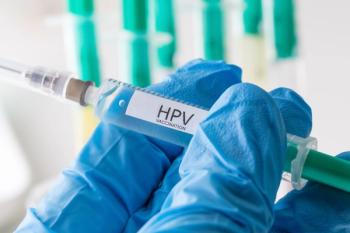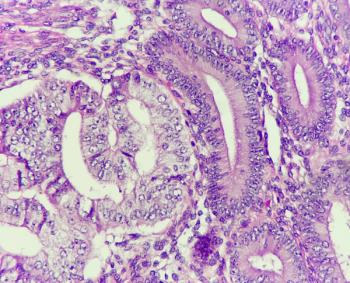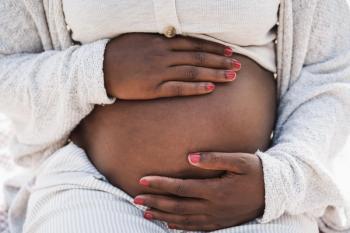
A new study found that diet, exercise, and other health factors have a greater impact on heart disease risk in women than in men, highlighting the need for gender-specific prevention strategies.

A new study found that diet, exercise, and other health factors have a greater impact on heart disease risk in women than in men, highlighting the need for gender-specific prevention strategies.

Discover how historical biases in chronic pain research have led to treatment disparities between men and women and how new findings are paving the way for more effective management strategies, as discussed by Tuan Trang, PhD.

A new study finds that postmenopausal women with a reduced creatinine-to-cystatin C ratio experience decreased muscle volume and slower walking speed, highlighting its role as a potential biomarker for muscle health.

Researchers have discovered that leptin, a hormone linked to energy metabolism, plays a crucial role in driving neuropathic pain in women but not in men, opening the door to targeted pain treatments.

A nurse-led intervention increased HPV vaccination rates among Hispanic adolescents in a rural North Carolina clinic, according to research presented at the 2025 NAPNAP conference.

A new study found that states with restrictive abortion laws have seen an increase in babies born with cyanotic congenital heart disease, highlighting potential long-term health care challenges.

A recent study reveals significantly elevated placental interleukin 6 and vascular endothelial growth factor receptor 2 messenger RNA expression in fetal death cases, highlighting inflammation and impaired fetal protection mechanisms.

A recent study identified distinct gene signatures in placentae from gestational diabetes and pregestational diabetes pregnancies, offering potential for improved diagnosis and treatment strategies.

A study found that a first trimester circulating microparticle biomarker can help predict spontaneous preterm birth risk, potentially improving early intervention and neonatal outcomes.

A recent study suggests that the soluble fms-like tyrosine kinase 1 to placental growth factor ratio can help predict clinical deterioration, intrapartum fetal distress, and mode of delivery, offering valuable insights for patient counseling and labor management.

Wanda Filer, MD, MBA FAAFP, from Pelvital, discusses how the Flyte device uses groundbreaking mechanotherapy to provide an effective, non-surgical solution for stress urinary incontinence.

Many women struggle with stress urinary incontinence but delay treatment because of embarrassment and lack of awareness, highlighting a need for screening and innovative treatments.

Review some of the top stories from the Contemporary OB/GYN website over the last week, and catch up on anything you may have missed.

A new study found that while cervical cancer risks remain low for women who meet screening exit criteria, they increase with age and time since last screening.

A new study highlights that sentinel lymph node mapping poses a low risk of lymphedema in women with low-grade endometrial cancer, supporting its use for accurate surgical staging.

A new study reveals that robotic-assisted laparoscopy surgery offers a slight overall survival advantage over conventional laparoscopy surgery for endometrial cancer patients.

A new study highlights the connection between heavy or prolonged menstrual bleeding and increased fatigue in menopausal women, emphasizing the need for greater clinical awareness and early intervention.

A recent study reveals significantly lower initiation and continuation rates of Mother’s own milk feeding among late preterm infants compared to other gestational age groups, highlighting a need for targeted support.

John PFA Heesakkers, MD, PhD, MBA, with Maastricht Universitair Medisch Centrum, highlights a study revealing that the Revi System significantly reduces urinary incontinence episodes, offering a side-effect-free alternative to traditional treatments with high patient satisfaction.

A recent study found that women with a history of gestational diabetes who sleep less or snore regularly face a significantly higher risk of developing type 2 diabetes later in life.

A recent study shows that intentional weight loss significantly lowers all-cause, cancer, and cardiovascular mortality risks among postmenopausal women, highlighting the importance of targeted weight management.

Shirley Wang, a PhD student in the School of Pharmacy at the University of Waterloo, discusses the findings on Levetiracetam’s safety during breastfeeding and how mothers can make informed decisions about medication use and infant health.

A recent study reveals that offering financial incentives to pregnant women to quit smoking can lead to increased neonatal birth weight and improved health outcomes.

A recent study reveals how a diverse uterine microbiome, particularly Lactobacillus dominance, influences fertility, in vitro fertilization success, and conditions such as endometriosis.

A new artificial intelligence model analyzing electrocardiograms helps identify female patients at higher risk for heart disease, offering earlier detection and more personalized treatment.

Review some of the top stories from the Contemporary OB/GYN website over the last week, and catch up on anything you may have missed.

A recent study reveals that Black, Asian, and Hispanic patients with private insurance face significantly higher out-of-pocket maternity care costs compared to their White counterparts.

A new study reveals that pregnant women who take higher doses of folic acid in the first trimester may improve their child's verbal abilities and behavior by age 6 years.

Discover how regular, moderate physical activity can boost mental well-being in women with chronic pelvic pain disorders such as endometriosis, adenomyosis, and fibroids.

Jannah Thompson, MD, FPMRS, discusses how the Neuspera sacral neuromodulation system encourages patient involvement, improving long-term treatment success and offering broader applicability for those with urge urinary incontinence.